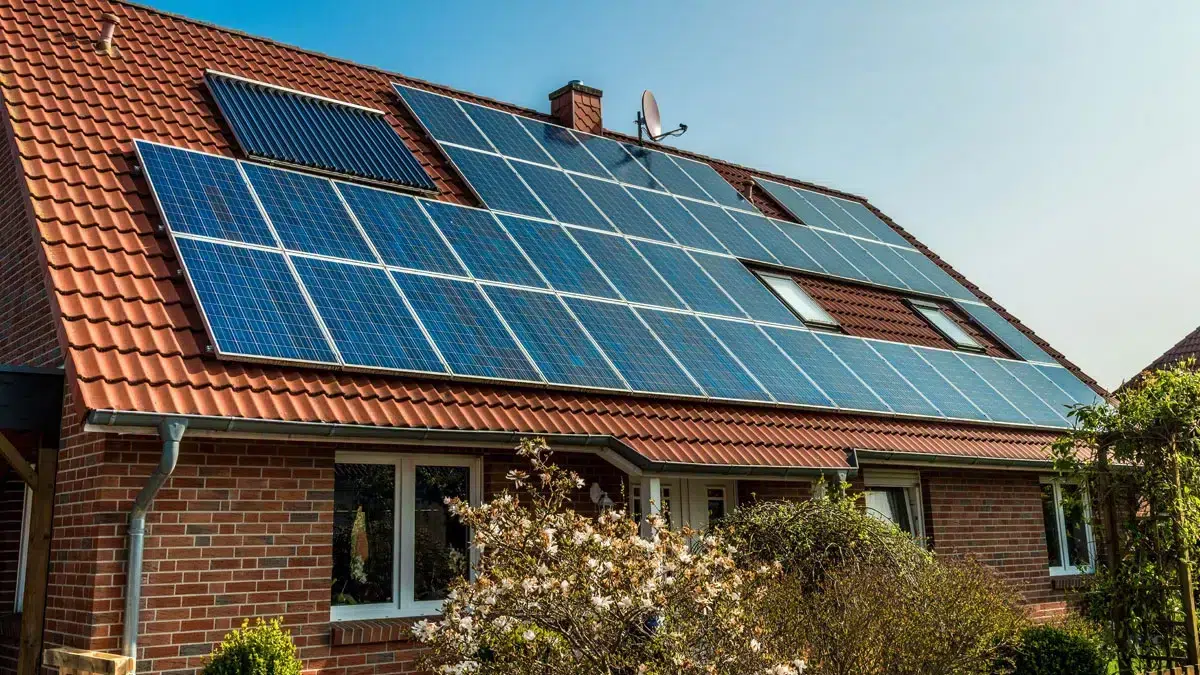
Solar panels have become increasingly popular as a way to generate electricity for homes and businesses. But can they also be used to heat a house? The short answer is yes, solar panels can be used to heat a house. However, there are a few things you need to consider before installing solar panels for heating purposes.
First, it’s important to understand that there are two main types of solar panels: photovoltaic (PV) and solar thermal. PV panels are used to generate electricity, while solar thermal panels are used to heat water or air. For the purpose of heating a house, you would need to install solar thermal panels.
Solar thermal panels work by capturing the heat from the sun and using it to heat either water or air. The heated water or air is then circulated through a series of pipes or ducts to heat your home. There are two main types of solar thermal systems: liquid-based and air-based.
Liquid-based solar thermal systems use a liquid, such as water or antifreeze, to capture the heat from the sun. The liquid is then pumped through a series of pipes to a heat exchanger, which transfers the heat to the water or air that will be used to heat your home. Liquid-based systems are more commonly used in colder climates because they are less affected by freezing temperatures.
Air-based solar thermal systems, on the other hand, use air to capture the heat from the sun. The air is then circulated through a series of ducts to heat your home. Air-based systems are typically less expensive than liquid-based systems, but they are also less efficient.
One of the biggest advantages of using solar thermal panels to heat your home is that they can significantly reduce your energy bills. According to the US Department of Energy, solar thermal systems can reduce your water heating bills by 50% to 80%. If you use your solar thermal system to heat your home as well, you could see even greater savings.
Another advantage of using solar thermal panels to heat your home is that they are environmentally friendly. Unlike traditional heating systems that rely on fossil fuels, solar thermal systems generate heat using a renewable energy source: the sun. By using a solar thermal system to heat your home, you can significantly reduce your carbon footprint and help protect the environment.
Of course, there are also some disadvantages to using solar thermal panels to heat your home. The biggest disadvantage is the upfront cost of installing the system. Solar thermal systems can be expensive to install, especially if you opt for a liquid-based system. However, the cost of solar thermal panels has come down in recent years, making them a more affordable option for homeowners.
Another disadvantage of using solar thermal panels to heat your home is that they may not be suitable for all climates. In areas with limited sunlight, or in areas where the temperature frequently drops below freezing, solar thermal systems may not be as effective at heating your home. However, even in these climates, solar thermal panels can still be used in conjunction with traditional heating systems to reduce energy bills.
In conclusion, solar panels can be used to heat a house, but it’s important to understand the differences between photovoltaic and solar thermal panels. If you want to use solar panels to heat your home, you will need to install a solar thermal system. Liquid-based systems are more effective in colder climates, while air-based systems are more cost-effective. While there are some disadvantages to using solar thermal panels to heat your home, the advantages, such as lower energy bills and reduced carbon footprint, make them a worthwhile investment for many homeowners.
